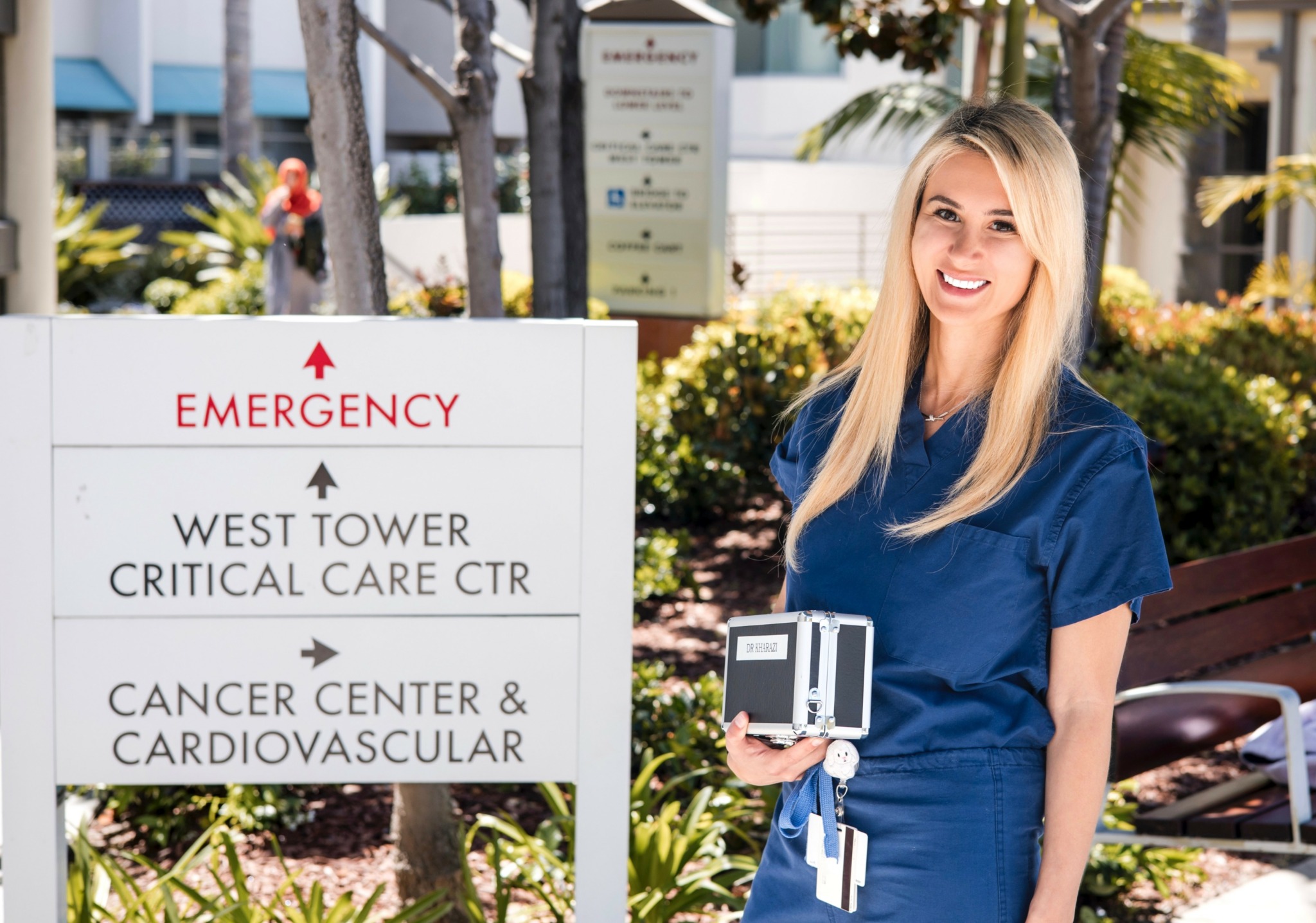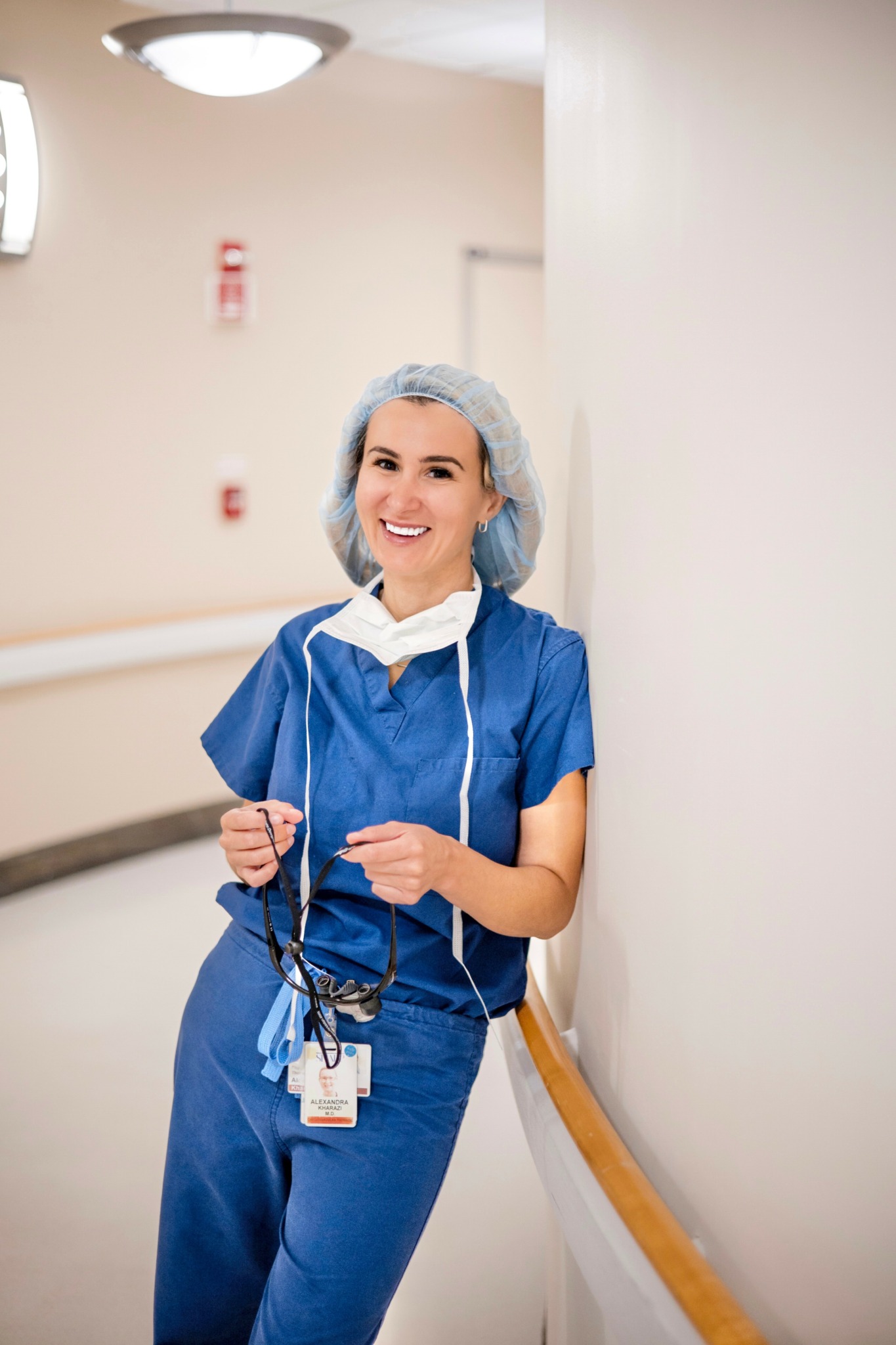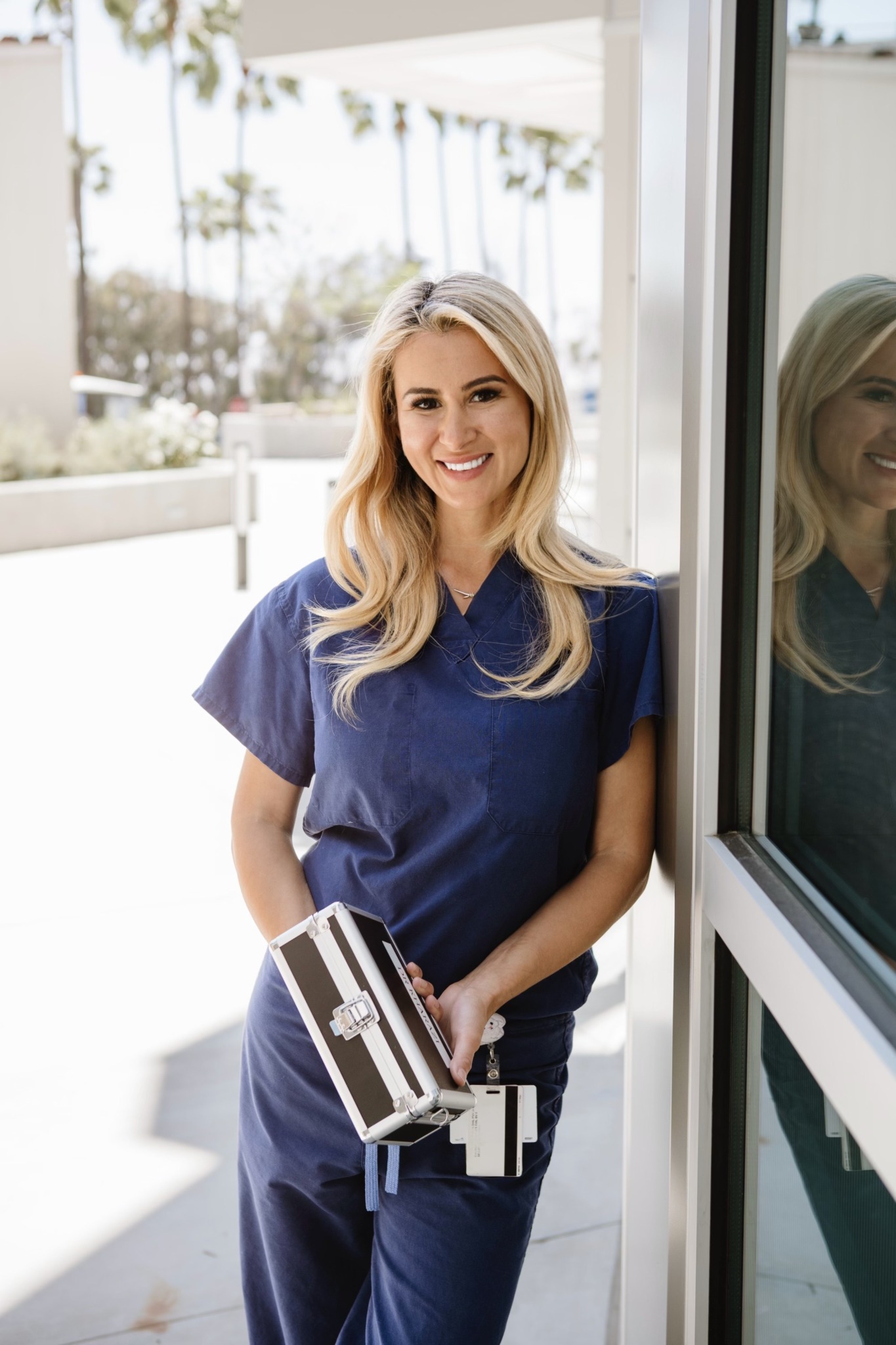We caught up with the brilliant and insightful Alexandra Kharazi a few weeks ago and have shared our conversation below.
Alexandra , thanks for taking the time to share your stories with us today Can you share an important lesson you learned in a prior job that’s helped you in your career afterwards?
One of the most important lessons I’ve learned came from a patient who wasn’t expected to survive. He was in cardiogenic shock, meaning his heart had failed and was not pumping blood to the rest of his body. I remember reviewing his case and thinking, ‘This is exactly why I became a surgeon — to fight for people no one expects to make it.’ We operated. He lived.
But the real lesson came weeks later, when he walked back into clinic with his family. He looked at me and thanked me for giving him more time. That moment pefectly illustrated what keeps me going. It’s about giving people more birthdays, more hugs, more life. It reframed everything. I stopped thinking in terms of statistics and risk models — and started thinking in terms of second chances.
That experience fuels how I show up — for every patient, every case, every hard decision. It’s not just about whether we can operate. It’s about what it means if we don’t.

Great, appreciate you sharing that with us. Before we ask you to share more of your insights, can you take a moment to introduce yourself and how you got to where you are today to our readers.
I am a board-certified cardiothoracic surgeon and advocate for heart health and surgical equity.
I was drawn to this field because Cardiothoracic surgery is high-stakes, high-pressure, and deeply human. The stakes aren’t abstract — they’re people’s lives, their families, their futures. That’s what keeps me sharp, present, and relentlessly committed.
Beyond the OR, I use my platform to advocate for earlier surgical intervention — especially for women, who are often misdiagnosed, under-treated, or dismissed when it comes to heart disease. I’ve a community campaign, spoken on national platforms, and partnered with the American Heart Association to bring visibility to the silent symptoms and systemic gaps that cost lives.
What sets me apart is that I don’t compartmentalize. I bring all of me to this work — the surgeon, the strategist, the storyteller. I believe in showing up powerfully and publicly so that others — especially young women in medicine — know it’s possible to be visible and real all at once.
I’m most proud of the patients who are still here because I said yes when others said no. I’m proud of the conversations I’ve helped start, the lives I’ve helped change, and the women I’ve helped show that there’s no one right way to lead.

We’d love to hear a story of resilience from your journey.
During my cardiothoracic surgery fellowship, I was pregnant with my daughter. I operated up until the day I delivered her — and I was back in the OR exactly two weeks later.
That chapter tested everything — my body, my endurance, my belief in myself. But it also taught me the kind of resilience that says, “Even if the system isn’t built for me, I’ll build myself around it — until I have enough power to change it.”
Now, I use that resilience every day — whether I’m advocating for patients who’ve been denied care, speaking in a public forum or balancing motherhood and medicine with intentionality.
Resilience isn’t just about survival.
It’s about becoming — again and again — even when the odds say you shouldn’t.

Training and knowledge matter of course, but beyond that what do you think matters most in terms of succeeding in your field?
Other than training and knowledge, the most important trait for succeeding in cardiothoracic surgery is emotional stamina.
The hours are long, the pressure is relentless, and the stakes are life and death. But what no one tells you is how often you’ll have to hold space for complexity: a failing heart, a grieving family, an exhausted team — all while operating.
You need the ability to stay calm when everyone else is panicking.
And you need the inner resilience to keep showing up, even when the system feels broken.
I’ve seen brilliant people burn out not because they lacked ability, but because they lacked support, reflection, or a way to stay tethered to something deeper than their title.
Jobs change — purpose doesn’t. Stay aligned with that.
Contact Info:
- Website: https://www.alexkharazi.com
- Instagram: alexandrakharazimd
- Facebook: Alexandra L. Kharazi
- Linkedin: Alexandra Kharazi, MD, FACS
- Twitter: AlexandraKhara1


Image Credits
Photo: Shay La’Vee


